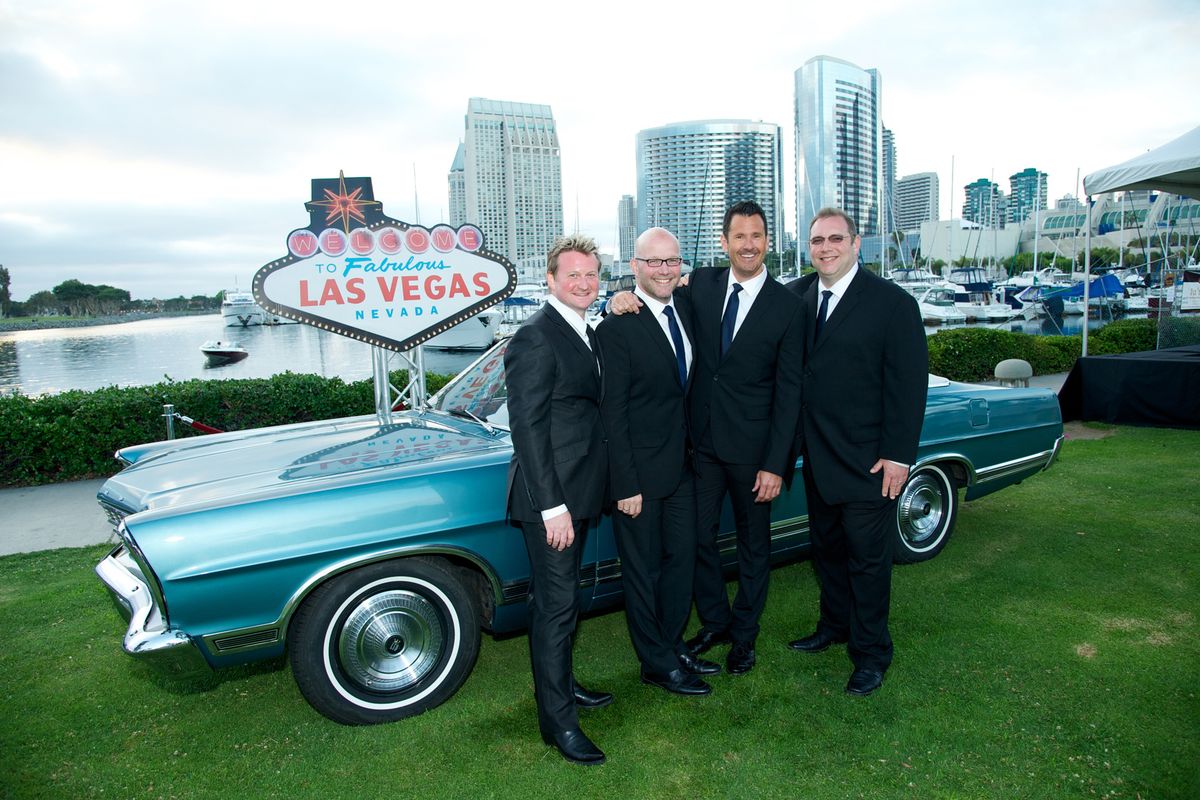The King’s musical legacy
Symphony’s SuperPops series pays tribute to Presley

It’s amazing now to think that Elvis Presley was ever regarded with anything but blind adulation, but his appearance on “The Milton Berle Show” in 1956 (the first time many audiences became aware of him) famously caused a firestorm of controversy.
You’ve no doubt seen the black-and-white footage of Elvis suggestively swiveling his hips to a half-tempo version of “Hound Dog,” a move that sent the audience of adolescent girls into a screaming frenzy. Parents were outraged, decrying Presley’s performance as the downfall of decency in America, and critics unsheathed their poison pens to lambaste the future icon for steaming up their TV sets.
All these years later, Presley’s music seems to inspire wistfulness rather than pearl clutching – it seems so tame now – and you can experience it live this weekend as part of the Spokane Symphony’s SuperPops series. Four vocalists – Scott Coulter, Lee Lessack, Johnny Rodgers and Brian Wilson – perform various hits from every phase of Presley’s career as accompanied by the symphony, conducted by Morihiko Nakahara.
“When we perform with the symphony, our arrangements sound huge, especially on the early hits,” Wilson said. “Later in his career, Elvis toured with a very large band that included strings, horns and percussion, so our arrangements sound pretty close to the way Elvis did it in the late ’60s and early ’70s.”
Coulter, who also created the show, likens the production to the popular jukebox musical “Jersey Boys”: Not only do you get an extensive retrospective of great Presley songs, but you come to learn the histories behind them.
“When you spend two hours experiencing his musical legacy, it really is jaw dropping,” Coulter said. “We also tell some of his personal stories which make you hear the songs in a new way. There’s a reason he sang the songs he sang: His personal life influenced his musical life, and hearing about the two together paints a portrait of the man that many folks might not see otherwise.”
Presley’s 20-year career has been categorized into a few distinct phases – there’s young “Heartbreak Hotel” Elvis, sanitized Hollywood Elvis, gospel singer Elvis and sweaty, glitzy comeback Elvis – and Coulter and crew cover all of them. Don’t expect to see any of the performers dress or sound like the King, however: This isn’t a showcase for Elvis impersonators.
“When I set out to create this show I wanted to show the evolution of not only Elvis but of rock ’n’ roll,” Coulter said. “I also set out to create a show that was absolutely not an impersonation show. In my opinion, Elvis was a one of a kind. I think if he can be so easily impersonated it diminishes what made him so unique.”
“He changed the world in 1956 and lived up to the hype,” Wilson said of Presley. “There isn’t a song out there that Elvis couldn’t sing. Vocally, he had amazing power when needed and blended it, perfectly, with a tender, vulnerable caressing of the melody. Every time you saw Elvis, he looked perfect and sounded perfect.”